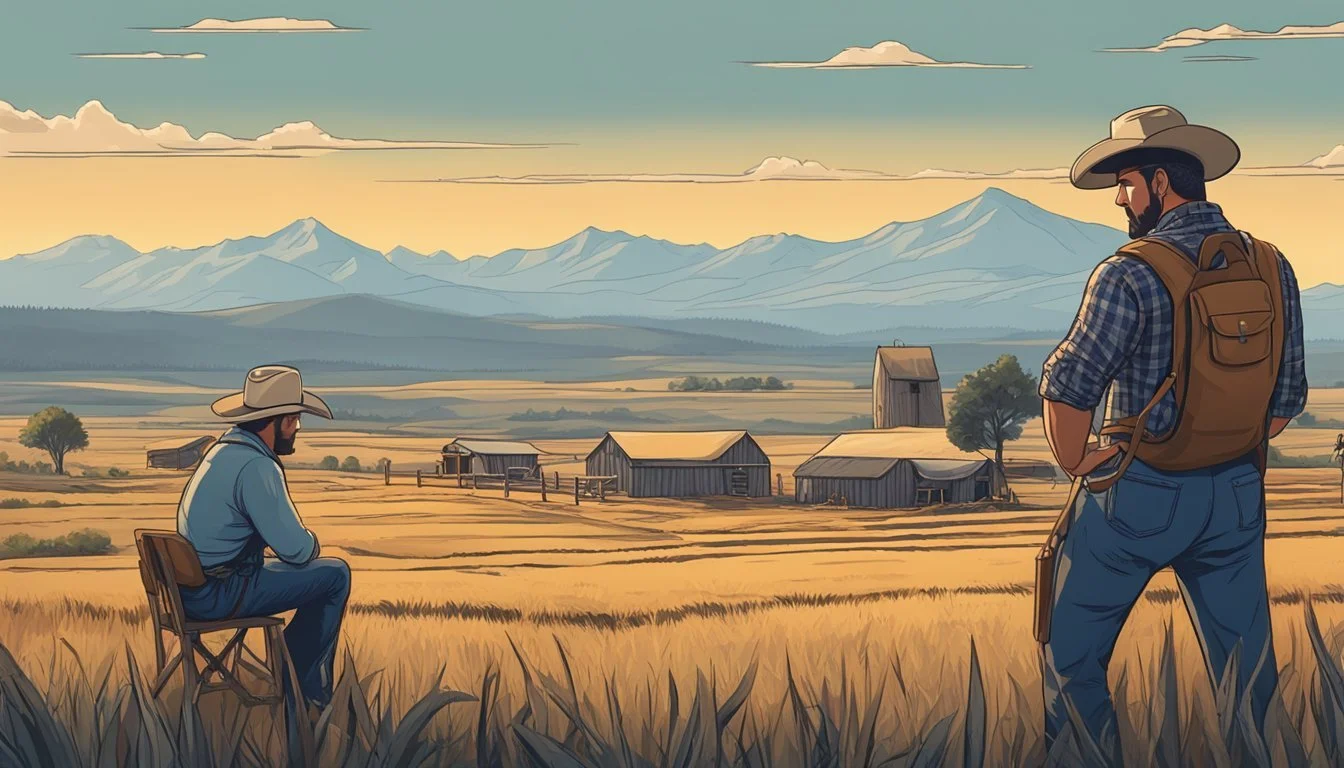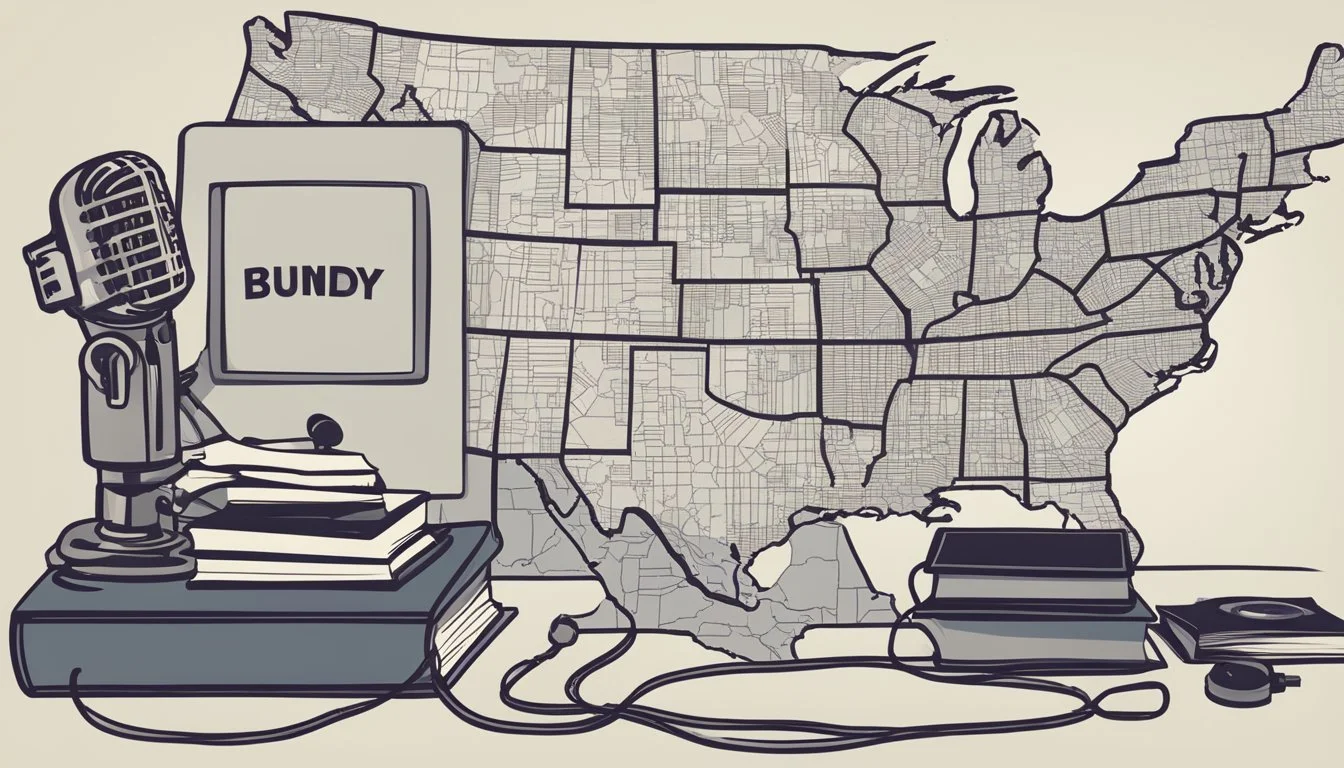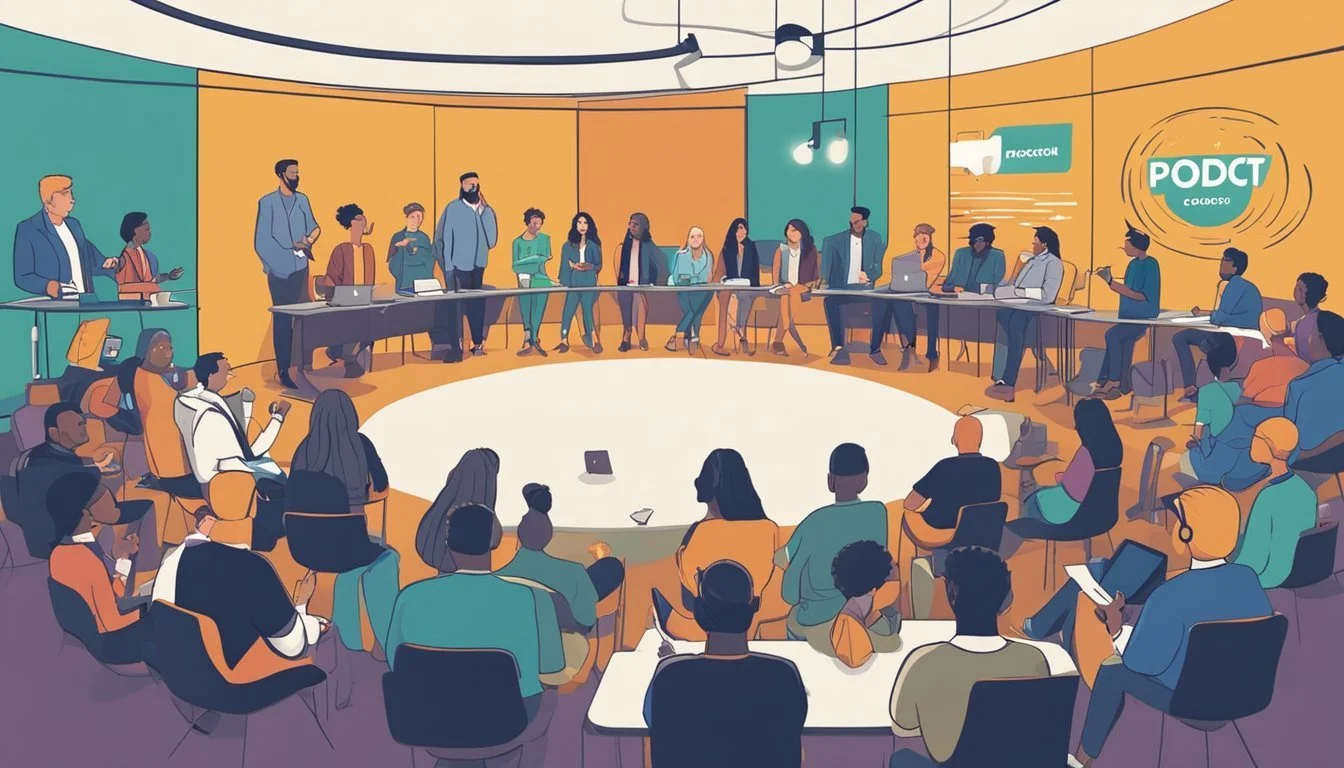Bundyville: How a Podcast About Anti-Government Extremism Became a Television Phenomenon
The podcast "Bundyville" has captivated listeners with its deep dive into anti-government extremism in the American West. Hosted by journalist Leah Sottile, the series explores the world beyond the Bundy family and the armed uprisings they inspired. "Bundyville" investigates the ecosystem of conspiracy theories, violence, and ideologies that fuel the anti-government movement.
Season 2, titled "Bundyville: The Remnant," expands the scope beyond the Bundys to examine the broader landscape of extremist groups. It asks probing questions about what happens to the movement when the Bundys aren't setting the agenda and how fringe ideas become increasingly mainstream. The podcast sheds light on the individuals and organizations that inspire violence and those who stand to benefit from it.
Through in-depth reporting and compelling storytelling, "Bundyville" has transformed from an audio series into a cultural touchstone. Its exploration of complex political and social issues has resonated with audiences, making it essential listening for those seeking to understand the roots of extremism in America.
The Rise of Podcasts as a Medium
Podcasts have revolutionized digital audio content, offering on-demand listening and niche programming. This shift has transformed how information is consumed and distributed, with technology playing a crucial role in their widespread adoption.
Transition from Radio to Podcasts
Podcasts emerged as an evolution of traditional radio, providing listeners with greater flexibility and control. Unlike scheduled broadcasts, podcasts allow users to access content anytime, anywhere. This format appeals to busy lifestyles and diverse interests.
The low barrier to entry for podcast creation has led to an explosion of content. Anyone with a microphone and internet connection can produce and distribute shows. This democratization has resulted in a vast array of niche topics and perspectives previously unavailable in mainstream media.
Podcasts also offer enhanced engagement through features like variable playback speeds and easy sharing options. These capabilities have attracted both creators and listeners, fueling the medium's rapid growth.
The Impact of Internet and Algorithms on Podcast Popularity
The internet's ubiquity has been instrumental in podcast distribution. Streaming platforms and dedicated apps have made discovering and subscribing to shows effortless. This accessibility has significantly expanded podcast audiences worldwide.
Sophisticated algorithms play a vital role in podcast discovery. These systems analyze listening habits and preferences to suggest relevant content. This personalized approach helps listeners find shows tailored to their interests, increasing engagement and retention.
Social media integration has amplified podcast reach. Sharing episodes and discussions online creates buzz and attracts new listeners. This viral potential has made podcasts an attractive medium for marketers and influencers.
Data analytics provide valuable insights for creators. Understanding audience demographics and behaviors helps podcasters refine their content and grow their listenership.
Bundyville: Overview and Synopsis
Bundyville explores the complex world of anti-government extremism in America through the lens of the Bundy family and their supporters. The podcast delves into the historical roots and modern manifestations of this movement.
Concept and Creation
Bundyville is a podcast series produced by Longreads and Oregon Public Broadcasting. It was created to examine the rise, fall, and resurgence of the Bundy family, who gained notoriety for their armed standoffs with federal authorities. The series is hosted by reporter Leah Sottile, who extensively researched the Bundy family's history and their impact on anti-government movements.
The podcast consists of multiple seasons, each focusing on different aspects of the Bundy saga and related extremist ideologies. It combines investigative journalism with historical context to provide listeners with a comprehensive understanding of the issues at hand.
Themes of Anti-Government Extremism
Bundyville examines several key themes related to anti-government extremism. It explores the ideological roots of these movements, including their interpretation of land rights and opposition to federal authority. The podcast also investigates the spread of extremist ideas from fringe groups to mainstream political discourse.
One central focus is the increasing acceptance of extremist language and ideas by some politicians. This shift has potential implications for American politics and society. The series also looks at the historical context of violence perpetrated by anti-government groups, analyzing how these incidents have shaped public perception and policy responses.
Bundyville provides a nuanced exploration of the complex factors driving anti-government sentiment in certain communities. It examines the role of religion, particularly Mormon fundamentalism, in shaping the beliefs of groups like the Bundys.
Production Quality and Sound Design
Bundyville's audio production elevates the podcast to a cinematic experience. Meticulous sound design and high-quality recording transport listeners into the world of anti-government extremism.
The Role of Sound in Storytelling
Sound plays a crucial role in Bundyville's narrative. Ambient noise and field recordings immerse listeners in the rugged landscapes of the American West. Carefully selected music cues heighten tension during key moments and underscore emotional beats.
The podcast uses audio clips from interviews and archival footage to bring historical figures to life. These sonic elements create a rich auditory tapestry that complements the host's narration.
Subtle sound effects, like the crackling of a campfire or distant gunshots, add authenticity to scenes. This attention to detail helps paint vivid mental images for listeners.
Techniques and Technologies
Bundyville employs professional recording equipment to capture crisp, clear audio in challenging outdoor environments. Directional microphones isolate voices from background noise during interviews.
In post-production, audio engineers use sophisticated mixing software to balance multiple audio tracks. EQ adjustments ensure voices remain intelligible against music and effects.
Stereo panning creates a sense of space and movement. This technique places sounds at different points in the audio field, mimicking how we hear in real life.
Compression and noise reduction clean up raw audio, removing unwanted hiss or room tone. These processes result in a polished final product that meets broadcast standards.
Journalism and Storytelling in Podcasts
Podcasts have emerged as a powerful medium for investigative journalism and complex storytelling. They allow hosts to dive deep into intricate topics while keeping listeners engaged through audio narratives.
Investigative Journalists as Podcast Hosts
Leah Sottile, the host of "Bundyville," exemplifies how investigative journalists can leverage podcasting. Her meticulous reporting on anti-government extremism in the American West translated into a compelling audio series. Journalists like Sottile bring their research skills and fact-checking rigor to the podcast format, ensuring accuracy and depth.
These hosts often conduct extensive interviews, analyze documents, and visit locations relevant to their stories. Their expertise allows them to contextualize complex issues for listeners, making difficult subjects more accessible.
Conveying Complex Topics through Audio
Audio storytelling presents unique challenges and opportunities for journalists covering intricate topics. "Bundyville" demonstrates how podcasts can break down complex histories and ideologies into digestible episodes. The format allows for creative use of sound design, archival audio, and expert interviews to illuminate abstract concepts.
Journalists must carefully structure their narratives to maintain listener engagement. They often use a mix of personal stories, historical context, and analysis to keep audiences invested. This approach helps convey nuanced ideas about anti-government extremism, legal battles, and societal tensions in a format that resonates with listeners.
Reception and Critique
Bundyville garnered widespread attention for its in-depth exploration of anti-government extremism. The podcast's compelling storytelling and investigative approach resonated with listeners and critics alike, sparking discussions across various media platforms.
Public and Critical Acclaim
Bundyville received praise from both audiences and critics for its thorough reporting and engaging narrative style. The podcast's ability to delve into complex issues surrounding anti-government movements captivated listeners. Many lauded its balanced approach in presenting different perspectives on the subject matter.
Wired highlighted Bundyville's success in making a niche topic accessible to a broad audience. The publication noted the podcast's skillful blend of historical context and contemporary relevance. Critics applauded host Leah Sottile's interviewing techniques and her talent for weaving together disparate threads into a cohesive narrative.
Discussion and Analysis in Media
Bundyville sparked conversations in media outlets beyond the podcasting world. News organizations and political commentators cited the podcast as a valuable resource for understanding the roots of anti-government sentiment in the United States.
The series' exploration of the connections between fringe movements and mainstream politics generated significant debate. Media analysts examined Bundyville's findings in the context of broader societal trends. Some outlets used the podcast as a springboard to discuss the role of journalism in covering extremist ideologies.
Bundyville's impact extended to academic circles, with researchers incorporating its insights into studies on political polarization and rural discontent. The podcast's success demonstrated the power of long-form audio journalism in tackling complex social issues.
Guides and Advice for Podcast Creators
Successful podcast creators focus on crafting engaging content and understanding their target audience. These elements form the foundation for building a compelling show that resonates with listeners.
Creating Engaging Content
Start with a clear concept and structure for your podcast. Define your show's format, episode length, and release schedule. Develop a strong hook to capture listeners' attention in the first few minutes.
Research topics thoroughly and prepare detailed outlines for each episode. Write concise, conversational scripts that sound natural when spoken aloud. Practice your delivery to improve vocal clarity and pacing.
Invest in quality audio equipment and learn basic editing techniques. Clean up recordings to remove background noise and awkward pauses. Add music and sound effects judiciously to enhance the listening experience.
Understanding Your Audience
Identify your target demographic and tailor your content to their interests and needs. Conduct listener surveys and analyze download statistics to gain insights into audience preferences.
Engage with your audience through social media and email newsletters. Encourage feedback and incorporate listener suggestions into future episodes. Create opportunities for audience participation, such as Q&A segments or live recordings.
Monitor industry trends and competitor podcasts to stay relevant. Adapt your content strategy based on audience growth and changing listener habits. Consider collaborating with other podcasters or featuring guest experts to expand your reach and add value for listeners.







